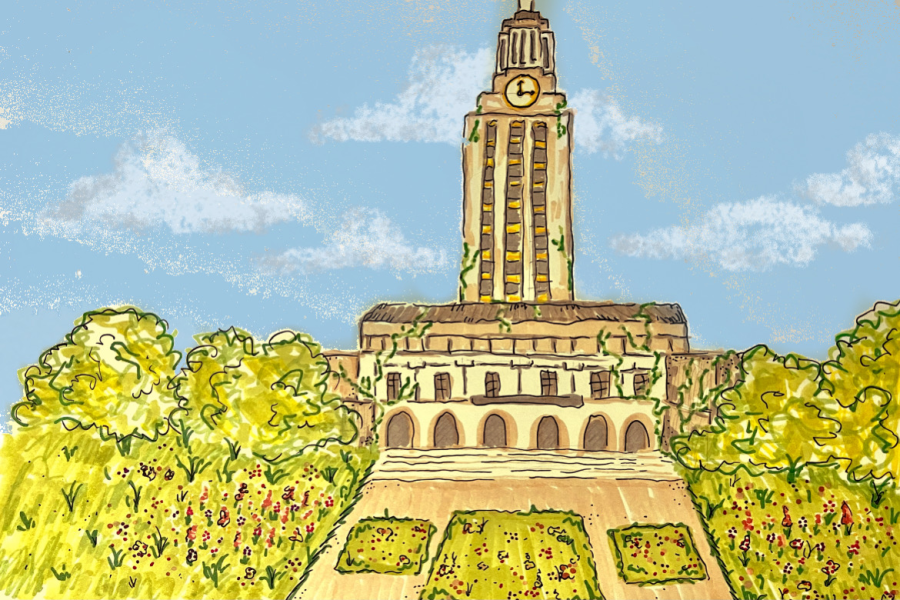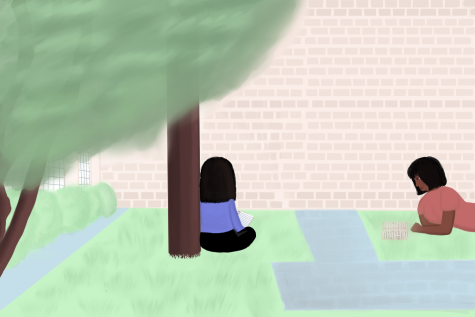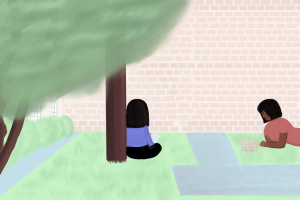Planting seeds of happiness
March 22, 2023
Recently, one of my friends mentioned how she wanted a space to garden on campus. It was an incredible idea, but we had no place to start. On top of that, neither of us had any gardening experience. It seemed daunting, but we did know one thing — we wanted our campus’ greenery to rub off on our thumbs.
Ideally, it should be easier for students to readily discover UT’s little spots of nature. UT’s large campus deserves more greenery.
Before starting college, biochemistry freshman Kaeden Reese fell in love with gardening. She planted her first seeds during the pandemic, and those few seeds eventually transformed into one of her favorite pastimes.
“I started gardening as a COVID-19 project,” Reese said. “Basically, I had a lot of free time, and I wanted to do something that got me off screens. Next thing I know, I was growing sunflowers, tomatoes, cucumbers. I just fell in love with it.”
For Reese, though, gardening became more than simply planting seeds and watering sprouts.
“On a personal note, I would say that gardening for me was great for my anxiety and my mental health,” Reese said. “Gardening (turned into) something where I didn’t have to think too much about everything going on in my life. I could just sit down and, to put it eloquently, put my hands in some dirt.”
Gardening became a healthy escape for Reese, and it brought her closer to people in ways she never expected.
Because gardening is beneficial to mental health, adding more communal garden spaces on campus could positively impact student wellbeing. Studies have shown that spending time around plants significantly boosts mood, and putting greenery in hospital rooms even expedites patient recovery.
“Gardening is very therapeutic … (and) we identify that gardening is definitely an opportunity for students to decompress,” said Erich Geiger, the executive director for residential dining and Longhorn hospitality.
UT Farm Stand is an oncampus organization that seeks to facilitate more gardening opportunities for students. The organization has two gardens on campus, and they sell their produce through their markets on Speedway.
Geiger said some current UT Farm Stand projects aimed at benefiting student mental health. The Farm Stand is in the process of installing a “Mindful Garden” near Jester that includes seating for quiet and reflection.
Another oncampus organization is UT Microfarm, which also works to create gardening spaces on campus. UT Microfarm then donates the produce they grow to the UT Outpost — a campuswide initiative meant to combat food insecurity.
In addition to the gardening work that UT organizations currently do, more gardens would have an overwhelmingly positive impact on student wellbeing. It is clear that gardening influences students, so making it a more accessible pastime should be a key priority.
Lack is a dance and Plan II freshman from San Angelo, Texas.











